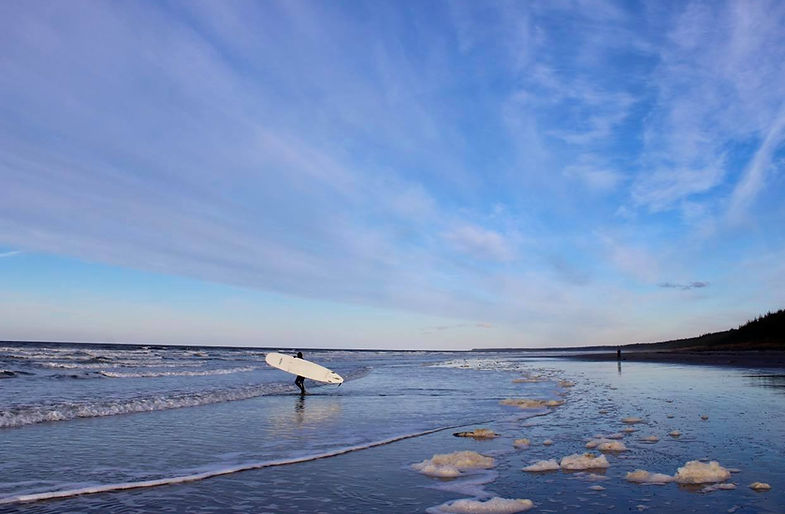A Semester Spent on the Edge of the World

A two-day drive and seven-hour ferry can take you from Vancouver and leave you on the edge of the world. As the road snakes north the landscape changes from lush temperate rainforest to the dry interior of the Cariboo. Take a left at Prince George, and the road meanders beside streams where bears saunter in search of food. A bit further, and lush rainforest appears once again covering mountains in a race to touch the sun. As the ferry from Prince Rupert enters the Hecate Strait, you sway under the strength of the swells while flukes of humpbacks descend into the depths. When the dark islands appear in the distance, a small part of you wonders if you really had found the edge of the world.

When I pulled up to the house called rainbow stairs I had agreed to rent with three strangers from a landlord called Captain Gold, I was skeptical. The four of us were accepted into a semester program that takes university students from across Canada to spend a semester studying natural resource science on the remote archipelago of Haida Gwaii. We exchanged stories of university life across Canada and our excitement of the months to come and were all happy to see the house did in fact have rainbow coloured stairs.

Our new home of Skidegate is a small reserve, with a population of roughly 800 Haida people who have called this archipelago home since time immemorial. They welcomed us onto their land with invitations to community meetings, free rides home from Skidegate’s only grocery store, and more bags then we could eat of herring roe on kelp. Captain Gold himself even stopped in a few evenings to share memories of his life as a young boy raised among elders and his life as a Haida historian waiting for science to catch up with the stories of his people.






The entire island opened up as our classroom. We spent a day trekking up a mountain to examine the change of plant life with altitude, hiking across endless beaches to a shipwreck to classify the invertebrate life of dune ecosystems, and wading through salmon-filled rivers to understand how the decomposition of salmon feeds coastal trees. Outside the classroom, weekends were left open to pursuing our own interests. I surfed in the frigid Pacific waters, volunteered at a local salmon hatchery, and sat alone at balance rock to slow down and appreciate the beauty of this place.

Perhaps the greatest of all our semester adventures was a trip to Gwaii Haanas. Gwaii Haanas National Park Reserve, National Marine Conservation Area Reserve, and Haida Heritage Site is a mouthful but speaks to the significance of the area. The southern third of Haida Gwaii is protected from mountain top to seafloor. The park is officially co-managed by Parks Canada and the Council of the Haida Nation. Historic Haida village sites are monitored by Haida watchmen in the summer months to share with visitors the history of their people. As we zipped around in zodiacs with endless oceans and islands as our classroom, I knew this was the closest I would ever come to my childhood dream of a trip on The Magic School Bus.

When our semester was over, none of us wanted to leave. The three strangers from months before had morphed into great friends, our memories now flooded with stories of adventures and waves and sunsets. As I watched the dark islands fade into the distance, I thought if the world had an edge, surely this was it.
Tales For Gaia